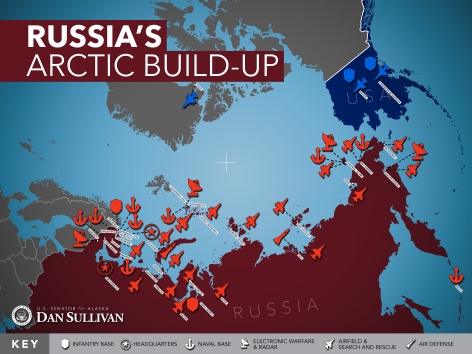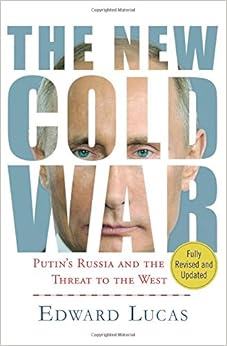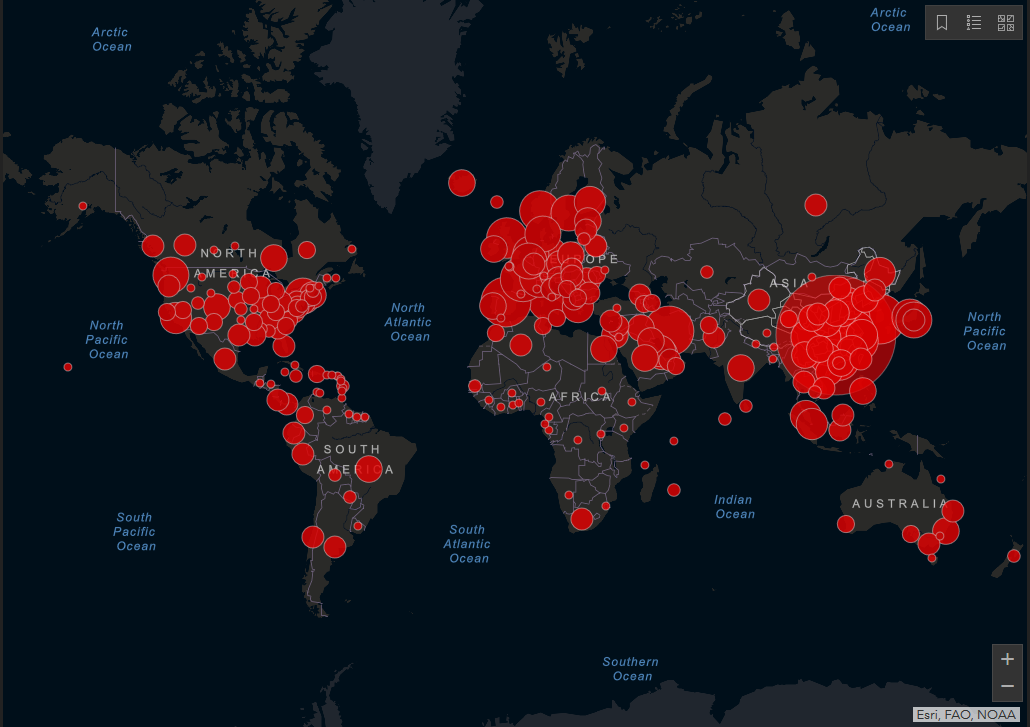 – Convicted for Torching Local KGB Office, Young Christian Democrat and Anarchist Activists Disappear into Lukashenko’s “Gulag Archipelago”
– Convicted for Torching Local KGB Office, Young Christian Democrat and Anarchist Activists Disappear into Lukashenko’s “Gulag Archipelago”
– Lukashenko Shores Up Regime by Securing Natural Gas Supply from Russia, Selling State-Run Beltransgaz’s Remaining Shares to Gazprom
– EU Pours Water on Possible “Association Agreement” between Brussels and Kiev in Wake of Tymoshenko Conviction, Kiev Threatens Possible Membership in Moscow-Led Customs Union
Lukashenko has run out of money and he is now selling fear to an angry and hungry population.
— Stanislav Shushkevich, Belarus’ first post-Soviet leader, October 2011
Pictured above: Belarusian KGB chief Vadim Zaitsev speaks during a news conference in Minsk, on April 13, 2011.
One of the key evidences for the phoney demise of Soviet communism in 1991 was the failure to hold a “Nuremburg trial” for the Leninist thugs who ruled over Russia and its satellites for more than 70 years. Indeed, the “hardline” communists who orchestrated the “Vodka Putsch” against Soviet President Mikhail Gorbachev in August of that year received minimal sentences, living out their remaining years in comfortable retirement and even attending Vladimir Putin’s first inauguration as Russian Federation president in 2000. In summary, there is for the most part no new blood in the leadership of the “former” Soviet republics. It is business as usual or, shall we say, communism in a more deceptive form.
To this end, Belarus’ embattled “ex”-communist dictator, President Alexander Lukashenko, has responded favourably to a proposal lately advanced by Russia’s “ex”-communist dictator, Prime Minister Vladimir Putin, to create a “Eurasian Union” in the “post”-Soviet space. This project would build upon the Customs Union of Belarus, Kazakhstan and Russia and probably the new free trade zone uniting the Commonwealth of “Independent” States. The Eurasian Union would at first compete and then merge with the European Union, itself, according to Soviet dissident Vladimir Bukovsky, a project concocted in the mid-1980s by the Moscow Leninists with their socialist/communist allies in Western Europe.
In an article published by Izvestia earlier this month, Putin propounded: “We suggest creating a powerful supra-national union capable of becoming a pole in the modern world, and at the same time an effective connection between Europe and the dynamic Asia-Pacific Region.” In his own written response, Lukashenko stated:
This is not meant to be a compliment to my colleague, the former Russian president and current prime minister, but I must say that this article was a real event. Russia has stated clearly and unambiguously for the first time in many years about the priority of the relations with the states with which it shares a common Soviet background.
Behind the words of the article lies a strategy. The right strategy.
Putin’s initiative should not be perceived as a division of Europe. The integration of Russia, Belarus and Kazakhstan is not against anyone.
The integration strategy described in the article is addressed not only to the voters and us, Russia’s neighbors, but to all global power centers. Bluffing could come out costly in this case, because upon receiving this powerful signal they all will make their strategic conclusions. Politics and politicians get respect only if they are serious and consistent. Thus, there should be no doubt that the intentions outlined by Putin are sincere.
You have to prove that the integration drive is not some sort of political games but a real prerequisite for the further improvement of human well-being.
If the three states succeed in forming the Eurasian Union this would lead to creation of the solid socio-political structure with common values, legal system, living standards and objectives. The union could eventually get a single currency.
Putin’s initiative to restore the USSR under a new name not only echoes the proclamations of Russian Communist Party boss Gennady Zyuganov, but also confirms yet again the remarkably accurate predictions offered by KGB defector Anatoliy Golitsyn more than 25 years ago in New Lies for Old. We have outlined those predictions in many previous posts. In summary, Golitsyn predicted that the Communist Party of the Soviet Union would abandon its public monopoly of power; (temporarily) withdraw the Red Army from Eastern Europe, thereby eliminating all reason for NATO’s existence; create a “neutral, socialist” Europe; bury the hatchet with the Chinese Communists; and eventually construct a new “worldwide communist federation.”
That Lukashenko himself should admit the existence of a “strategy” on the part of the Russian leadership, with which he is closely allied, is therefore telling. There is indeed a Leninist strategy unfolding in the Not-So-Former Soviet Union, where the Stalinist boot for the most part presently wears a velvet slipper.
Defying the bans and sanctions of the EU and no doubt emboldened by a US$1 billion loan from Red China, however, Lukashenko is twisting the thumbscrews ever tighter on the hapless citizens of Belarus. Last week, his rubberstamp parliament, with backing from the Communist Party of Belarus, passed legislation that grants sweeping powers to the Committee for State Security (KGB). Unlike Russia, the Belarusian communists elected to retain the old Soviet-era name for that republic’s secret police.
According to the MSM, the new law lifts restrictions on the KGB’s use of weapons, gives KGB officers the authority to break into residences and offices, and makes it even easier for Lukashenko to throw his political opponents behind bars. A new ban on receiving foreign funds carries a two-year prison sentence, while simply calling for an anti-government protest can lead to a three-year prison sentence. The Minsk regime is also expanding the definition of treason in such a way as to cast possible suspicion on anyone working for a foreign organization.
Oleg Gulak, head of the Belarusian Helsinki Committee, has commented that Minsk’s law enforcement agencies have been granted “the same rights that the Soviet secret police had in Stalin’s time.” According to other human rights activists and dissidents, the KGB’s Soviet-style powers reflect “Lukashenko’s fear of rising public anger” over the country’s worst financial crisis since the fall of the Soviet Union. For example, the value of the Belarusian ruble has collapsed, prompting Minsk to unify the currency’s exchange rate, while inflation is running at a staggering 60 percent, forcing the regime to remove subsidies for food and fuel.
President Lukashenko’s iron-fisted rule since 1994 has prompted both the USA and EU to impose economic sanctions on the country and travel bans on officials from Minsk. A recent poll showed that Lukashenko’s approval rating has plunged to an all-time low of 20 percent. The poll from the Independent Institute for Socio-Economic and Political Research indicates that support for Lukashenko dropped among farmers, blue-collar workers, and retirees, social groups that previously endorsed his efforts to preserve a Soviet-style social safety net and maintain relative stability in the global economy.
“Lukashenko has run out of money and he is now selling fear to an angry and hungry population,” Belarus’ first post-Soviet leader, Stanislav Shushkevich, told the Associated Press. In December 1991, along with Russia’ Boris Yeltsin and Ukraine’s Leonid Kravchuk, Shushkevich co-founded the so-called Commonwealth of Independent States, a sort of “placeholder” for the soon-to-be-restored Soviet (Eurasian) Union.
In another effort to shore up his crypto-communist regime, Lukashenko is also ensuring that Belarus receives a steady supply of natural gas from Russia and handing over the keys of Belarusian state enterprises to Moscow. The Minsk Telegraf reports that Gazprom Chairman Alexey Miller is hosting talks with Belarusian Deputy Prime Minister of Sergei Rumas to complete a contract for the supply and transportation of Russian gas through Belarus, as well as the sale of Beltransgaz’s remaining shares to Gazprom. Russian and Belarusian negotiators say the documents will be ready for signing in November.
Meanwhile, the plight of Belarusian opposition leaders and activists, some exiled and some jailed, can only be described as miserable.
Earlier this month, former presidential candidate Uladzimer Nyaklyaeu was warned again by his parole officer after taking part in an opposition gathering. Nyaklyaeu told Radio Free Europe/Radio Liberty that he participated in a People’s Assembly convened by the Belarusian opposition in Minsk on October 8. He said police visited his apartment three times that day to check whether he was at home. Later, police delivered a subpoena summoning him to the parole inspection center in Minsk’s Lenin District on October 10.
“They must have received specific instructions to keep me under constant surveillance to justify my possible return to jail for violating parole,” Nyaklyaeu told RFE/RL.
On October 3, the parole inspection center issued a “final warning” to Nyaklyaeu for visiting Poland between September 27 and 30. While in Warsaw, Nyaklyaeu attended the EU’s Eastern Partnership summit and a human rights conference.
On October 13, another dissident, Viktar Ivashkevich, was fined 1.4 million rubles (US$250) for his part in actually organizing the Minsk People’s Assembly. Judge Kiryl Palulekh found Ivashkevich guilty of violating the law on public gatherings. Ivashkevich faced 15 days in jail or a fine. Ivashkevich retorted that the People’s Assembly was held in accordance with the law on town hall meetings, which does not require prior permission from local authorities. Judge Palulekh overruled the requests by Ivashkevich and his lawyer. Significantly, Ivashkevich brought personal items with him to court on the assumption that he would be jailed.
At the Minsk People’s Assembly meeting, some 500 opposition activists gathered in Peoples’ Friendship Park, adopting a resolution addressed to the government. The resolution demanded wage increases, a cap on price hikes, the release of all political prisoners, and free presidential elections under the supervision of the Organization for Security and Cooperation in Europe (OSCE). Other meetings were held in Berastse, Mahileu, and Slonim. Several organizers and participants were fined at similar trials. More People’s Assembly gatherings are planned for November 12.
Lastly, the unknown fate of Yauhen Vaskovich, a member of the unregistered Belarusian Christian Democracy party, exposes the ongoing reality of Belarus’ Soviet-style gulag system. Vaskovich is serving a seven-year prison term for an arson attack on the local KGB headquarters in the eastern town of Babruysk in October 2010.
On October 18, RFE/RL reported that Vaskovich had been transferred from a labor camp in the eastern city of Mahileu to another facility, but his family does not know his whereabouts. Officials at Labor Camp No. 15 in Mahileu told RFE/RL that Vaskovich had indeed been transferred from there to “another labor camp,” but did not specify the destination. A labor camp duty officer said Vaskovich’s relatives will be informed where he is three days after his arrival at the new location.
Vaskovich’s mother, Rushannya, told RFE/RL she has not been officially informed about her son’s transfer. She said Vaskovich wrote in his last letter to her that he was to be moved to a “closed correctional facility” (PTK), where inmates are usually sent for systematically refusing to obey prison guards. At the Mahileu labor camp, Vaskovich was placed in solitary confinement on numerous occasions for this transgression.
Two anarchist activists, Artsyom Prakapenka and Pavel Syramalotau, were also jailed for seven years over the Babruysk arson attack. Vaskovich admitted his involvement, but pleaded not guilty. His two associates, however, pleaded guilty. Belarusian Christian Democracy considers Vaskovich a political prisoner, but acknowledges that his participation in the attack was wrong.
Meanwhile, Ukrainian President Viktor Yanukovich, a Moscow-friendly “ex”-communist like Lukashenko, has rejected EU protests over the jailing of former Prime Minister Yulia Tymoshenko and intends to nevertheless pursue a trade agreement with Brussels. “The point isn’t if someone likes the verdict or doesn’t–in Ukraine or in Europe,” Yanukovich told reporters in Kiev. “The point is that there is a supremacy of law, there is a court that decides. Whatever decision the court makes, we must respect it.”
Last week, Tymoshenko—ironically, a Komsomol grad and thus part of the old Soviet regime like Yanukovich—was sentenced to seven years in prison for abuse of power as premier when signing a 10-year gas supply and transit agreement with Russia in 2009. The verdict may have “profound implications” for Ukraine’s relations with the EU, warned Maja Kocijancic, a spokeswoman for the European Commission. EU President Herman Van Rompuy has said that a planned meeting with Yanukovich in Brussels would be delayed. Last month, EU Enlargement Commissioner Stefan Fule opined that “The Tymoshenko case appears to be politically motivated and may damage Ukraine’s reputation.”
The Ukraine Security Service (SBU), which was hived off the old Soviet KGB but renamed like Russia’s Federal Security Service, opened a new criminal probe into Tymoshenko on October 13, accusing her of transferring US$405 million in debt owed to the Russian Defense Ministry by United Energy Systems, a company she used to run, to the state budget. Tymoshenko denied any wrongdoing, counter-accusing Yanukovich of engineering the trial to silence opposition before parliamentary elections next year.
In a related story, Putin has rebuked Ukraine for seeking EU membership, which is “absolutely unrealistic,” according to a September 16 comment by the Russian premier, who is seeking to return to the presidency next year. Russia has invited Ukraine to join the Customs Union, but Kiev has previously said the country is ready to cooperate with the union only in a so-called three-plus-one format. At the same time, Ukraine hopes to initiate an association agreement with the EU by the end of 2011.
“We are looking for a possible form of cooperation with the custom union,” explained Yanukovich, who is straddling the fence between Moscow and Brussels. “We are obliged to find a form that would not contradict our European integration.” Ukraine’s Social Policy Minister Serhiy Tyhypko has come right out to confirm that, as a result of the Tymoshenko flap with the EU, Ukraine may move closer to the Customs Union if the EU backtracks on its proposed “association agreement” with Kiev. “If the European Union gives a clear ‘no’ signal, the possibility that Ukraine will turn to the Customs Union is quite high,” huffed Tyhypko to Ukrainian newspaper Den.
Into the spat between Kiev and Brussels arrives Russian President Dmitry Medvedev, like Tymoshenko a graduate of the Soviet Komsomol. On Tuesday, Medvedev met with Yanukovich in Donetsk, Ukraine, for an interregional economic forum. Apart from issues of energy and the Customs Union, Medvedev and Yanukovich will discuss border interaction, joint research and technology, joint industrial ventures, transportation, and the environment. No doubt, too, the neo-Soviet leadership will look at the opportunities for exploiting the European debt crisis in order to advance its own position in the world.






